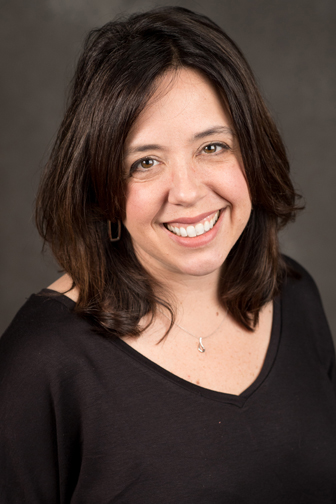
Title: Assistant Professor of Communication Sciences and Disorders
Hometown: Oradell, New Jersey
Educational background: BA in English and Psychology from Rutgers University; MS from Columbia University; PhD from UW-Madison
Professional background:
I was a practicing speech-language pathologist for 15 years before earning my PhD in Communication Sciences and Disorders. I’ve been working with the Wisconsin Alzheimer’s Institute and the Wisconsin Alzheimer’s Disease Research Center since 2006.
How did you get into your field of research?
I have always been interested in geriatrics. I became a speech pathologist after my grandmother had a stroke and developed dementia. The Wisconsin Registry for Alzheimer’s Prevention longitudinal study looks at health, lifestyle and biological factors that may prevent or delay the onset of Alzheimer’s disease dementia. I’ve been fortunate to work with many of the 1,500 participants over the years, and they inspire me to do the best research that I can.
What attracted you to UW-Madison?
The interdisciplinary community and the research collaborations, particularly in the field of Alzheimer’s disease, are fantastic at UW-Madison. There are many opportunities to become involved in cutting edge research.
What was your first visit to campus like?
I’ve been living in Madison since 2005, and have loved the way the students enliven the Madison community. I’ll never forget of first time I visited Memorial Union Terrace and saw the lake — it is beautiful!
What’s one thing you hope students who take a class with you will come away with?
That as a speech pathologist they are providing diagnoses and treatment for a whole person, not just a disorder.
Do you feel your work relates in any way to the Wisconsin Idea? If so, please describe how.
I intend to develop new multicultural materials for assessment, and will be doing so with input from the community before, during and after development. I will be testing cognitive interventions for mild cognitive impairment and dementia, that will hopefully inform the community and provide opportunities for students to interact with community members.
What’s something interesting about your area of expertise you can share that will make us sound smarter at parties?
Most people associate Alzheimer’s disease dementia with changes to memory, but speech and language problems also develop early in the disease course. Problems communicating can lead to challenging behaviors in people with dementia; by understanding communication problems, caregivers may be able to prevent some of the difficult behaviors we see in dementia.
Hobbies/other interests:
Being a mom of two great boys, cooking, yoga and baking pie.